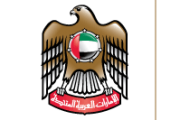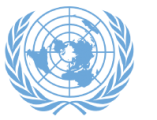Thank you so much Dr. Nawal (Al-Hosany) for your kind introduction, and the invitation to speak tonight.
Masdar and the Zayed Future Energy Prize have been exceptional in both the Middle East and globally for their ability to focus attention on the most important discussion of our time: how to achieve sustainability and stop climate change in the context of soaring energy demand and the legitimate right of countries to development.
I am pleased to be here with you all tonight talk about the United Arab Emirates’ perspectives on the equally important challenge of ensuring women are agents in addressing this and other global development and security priorities.
As the United Arab Emirates’ Ambassador (Permanent Representative) to the United Nations, these are issues we advocate for every day – calling for the inclusion of women as principal actors, influencers and decision makers across all sectors. For example, today I delivered a statement at the United Nations Security Council in which I argued that empowering women is the first line of defence in countering extremism. This year, in formulating the Sustainable Development Goals, which will set the ambitions for all 193 countries of the UN for the next 15 years, the UAE was one of the first to advocate for a strong gender goal. That is because for us, women’s empowerment is not merely an aspiration, but a foundational element of sustainable development, and concrete foreign policy priorities that are borne out of our own national experience and development.
From the perspective of the United Arab Emirates, founded in 1971 – our evolution as a state occurred against a backdrop of resource scarcity, regional instability and demographic change. In order to ensure our economic development, utilize the resources represented by our entire population and navigate a complex region – our founding leaders emphasized the values of moderation, tolerance and respect for diversity. We were clearly fortunate to have visionary leadership, but perhaps the true vision of our founders was to understand that leadership is not enough.
The values and aspirations of societies need to be protected by strong institutions, good governance, the provision of high quality government services such as health and education, and the willingness to apply international best practice and innovate in the face of challenges at the political, policy and operational levels.
Our model of development has demonstrated the benefits of this approach and has informed our engagement in the international and multilateral sphere on a range of priority issues – most notably, climate change. Arguably, the primary threat we face as a global community is climate change – in terms of our environment, economies and increasingly in terms of international peace and security.
In order to confront this, the UAE took a bold stance to embrace renewables in the heart of the hydrocarbon industry. We believed early on that there was a sound case for alternatives, and the UAE accordingly invested billions of dollars in major commercial projects, from the UK’s North Sea to Jordan to Minnesota. At the same time, we have allocated $750 million in development assistance in the last three years, to kick-start renewable energy growth in fellow developing countries from Ecuador to Vanuata. That is how strongly we believe in this future, not only for ourselves but also for our partners and allies.
Despite initial controversy, our support for renewables has been overwhelmingly validated. In the race for alternative and affordable energy, renewables are winning – and now offer the cheapest source of new power supply in most of the world – the US and the Middle East included. In November, Dubai set the world record low for solar costs at 5.84 cents per kilowatt hour, nearly half the cost of even natural gas for daytime power. For context, electricity prices in New York are around 20 cents per kilowatt hour.
But for renewable to succeed, like all aspects of sustainable development, we must again emphasize the roe of women. The UAE, I am proud to say, champions women’s empowerment at every level of our society. Our late founding father and President H.H Sheikh Zayed bin Al Nahyan is often quoted as saying “Women are half of society and societies that fail to employ that complete half are doomed to failure”. As a result, our constitution enshrines equality, social justice and equality of opportunity for all our citizens –for the benefit of all society. Today, as our Prime Minister, HH Sheikh Mohammed bin Rashid al Maktoum, has stated “We have moved beyond the phase of empowering women. Indeed, we are empowering society through women”.
The results are clear. More than 70% of university stidents in the UAE are women. In 2012, women accounted for 62% of post-graduate in public universities and 43% in private universities. In 2011, women made up 59% of the UAE’s national workforce, including positions in the fields if engineering and science. On STEM specifically, we are working to address the various barriers to entry that we have identified. These include rising awareness among female students of the importance of studding science, technology and engineering; offering scholarships; as well as providing mentoring and career support including internships with prestigious industry players.
The results are clear. More than 70% of (public/government) university students in the UAE are women. In 2012, women accounted for 62% of post-graduates in public/government universities and 43% in private universities. In 2011, women made up 59%of the UAE’s national workforce, including positions in the fields of engineering and science. On STEM specifically, we are working to address the various barriers to entry that we have identified. These include raising awareness among female students of the importance of studying science, technology and engineering; assuring families that female students will be safe in the classroom and that technical education and careers are prestigious and valuable; offering scholarships; as well as providing mentoring and career support including internships with prestigious industry players.
All of these efforts have developed from a recognition of the role that family, society and governments can play in motivating and supporting female participation. It requires the commitment of men as well as the continued high achievement of women. It also requires a contemporary world view that genuinely sees plurality and inclusion as a positive aspect of society.
I have spoken about gender and sustainability models from the UAE perspective and at the United Nations. But the message that I would like to offer tonight transcends sector, country or arena. It is that the “business case” for diversity is fundamentally the same as the ethical case for diversity. We urgently need solutions to the critical problems that dominate today. The only way we can ‘beat the clock’ on climate change is through developing excellence. If the journey to excellence is innovation, then the path to innovation is by gathering and listening to good ideas from the greatest and most diverse experiences possible. That is why we need everybody in the room, that is why women, and young people and people from low, middle and high income countries need to work together.
I do not underestimate the scale of the challenge ahead. We have much work to do domestically, and globally. The number of women in STEM fields remains disappointingly low, and the number of women in leadership positions has a long way to go before reaching parity.
Part of the remedy will be awareness-raising and normalization of women in both senior and junior positions in traditionally male-dominated fields like energy. We are therefore extremely proud of the WiSER Forum, which is a new flagship anchored initiative at Abu Dhabi Sustainability Week and the World Future Energy Summit, the world’s largest annual gathering on clean energy and water. WiSER brings the issue of women’s visibility to the attention of an influential audience. Our partners in this venture are critical to the success we expect. Tonight’s event is co-hosted by Masdar and Bloomberg New Energy Finance (the world’s top clean energy analyst) and I am delighted to we are joined by representatives of the “C3E programme” launched by the US Department of Energy to encourage more women into the STEM field, as well as Columbia University’s “Women in Energy” programme.
Advocacy and awareness-raising will not be enough, however. Regulation may also be needed. In the UAE, by law we require female representation on every government and state-owned company board – with a view to normalizing the participation of women in public and private decision making.
We need equal participation and representation so that gender parity is seen as the norm and not the exception – in any boardroom, laboratory, classroom or even – in an inter-governmental negotiation. We need to keep putting women in the spotlight. To that end, I could not be more delighted to see from the level of participation of the women here today, that the talent pool of women actively working and leading in field of clean energy is deep.
I look forward to the discussions tonight – led by world-class experts in the fields of sustainability and energy, part of a nascent and critical industry that we all believe holds the key to a truly sustainable and diverse future for us all.
Thank you.


